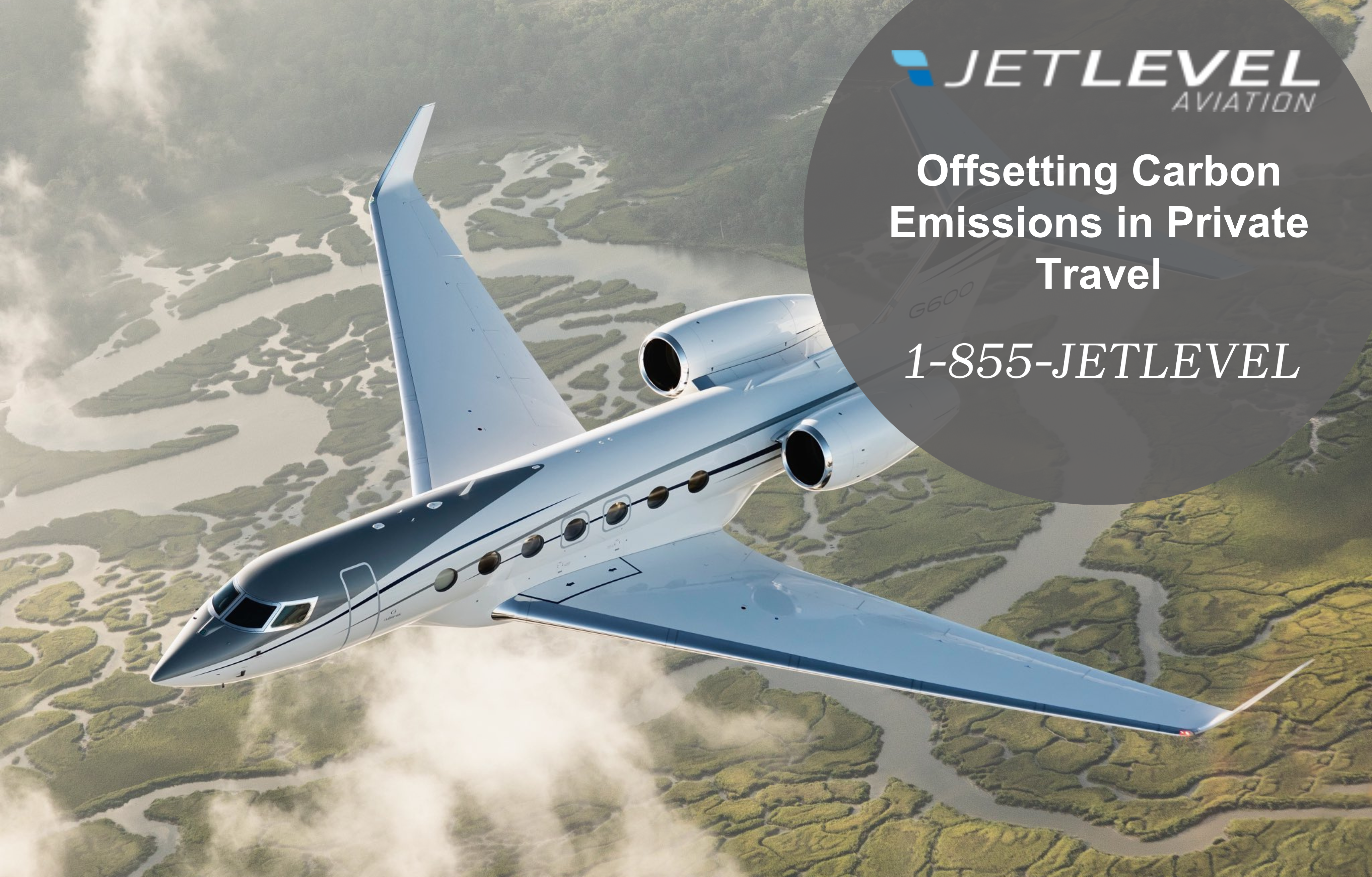In the realm of private aviation, the dialogue around environmental sustainability is more crucial than ever. With nearly two decades of experience in the private jet charter sector and as the founder of JetLevel Aviation, I’ve witnessed firsthand the industry’s evolution towards greener practices. Our commitment to minimizing our environmental impact has never been stronger, and I’m here to share how we, as a community, can contribute to a more sustainable future in private travel.
JetLevel Aviation’s pioneering efforts in sustainable private travel have been featured in reputable aviation and environmental magazines. Our leadership in adopting and promoting Sustainable Aviation Fuels (SAF) and carbon offsetting initiatives has set industry benchmarks, earning us recognition as a go-to authority on eco-friendly private jet travel.
Reflecting on our journey towards sustainability, one of our most impactful experiences was including aircraft like the Embraer Phenom 300E in our network of jets, known for its eco-efficiency. This move, inspired by a deep dive into the latest aviation technologies and operational strategies, underscored our commitment to reducing our environmental footprint. It’s these hands-on experiences, from evaluating aircraft to implementing operational efficiencies, that have shaped our approach to sustainable aviation.
For those interested in contributing to environmental sustainability while enjoying the unparalleled service and convenience of private travel, consider requesting a quote with us.
The potential of SAF to revolutionize aviation’s environmental impact is supported by extensive research. According to the International Energy Agency (IEA), SAF can reduce greenhouse gas emissions by up to 80% over the fuel’s life cycle compared to conventional jet fuels. Our proactive incorporation of SAF into operations at JetLevel Aviation is a testament to our dedication to leveraging science-backed solutions for sustainability.
For those looking to understand more about the costs and benefits of chartering a private jet, including the environmental aspects, our guide on the cost of chartering a private jet offers valuable insights.
Additionally, our initiative on empty leg flights not only provides cost-effective travel options but also contributes to reducing unnecessary emissions, aligning with our sustainability goals.
The journey towards a greener future in private aviation is a collective effort. At JetLevel Aviation, we invite you to join us in this commitment. For a personalized quote that aligns with your sustainability values, visit JetLevel Aviation. Together, we can ensure our skies remain as blue as the oceans below.
Introduction to Carbon Offsetting in Aviation
Carbon offsetting in aviation is a method to balance out emissions from flights by investing in environmental projects that reduce CO2 in the atmosphere. This practice is increasingly becoming a staple in the industry’s approach to sustainability. Reflecting on my early career, the focus on carbon emissions was minimal, but today, it’s a central part of our operational ethos at JetLevel Aviation.JetLevel Aviation’s pioneering efforts in sustainable private travel have been featured in reputable aviation and environmental magazines. Our leadership in adopting and promoting Sustainable Aviation Fuels (SAF) and carbon offsetting initiatives has set industry benchmarks, earning us recognition as a go-to authority on eco-friendly private jet travel.
Understanding Carbon Footprints in Private Travel
The luxury and efficiency of private jets are often shadowed by their environmental impact, typically higher per passenger compared to commercial flights. This realization prompted a deeper exploration into how JetLevel Aviation could mitigate these effects, leading us to innovative solutions for our clients and operations.Key Methods for Reducing Jet Emissions
In our pursuit of reducing emissions, we’ve turned to advanced aircraft technology and operational efficiencies. Modern jets, such as the Embraer Phenom 300E, exemplify this shift, offering both luxury and reduced environmental impact. Operational strategies, like optimizing flight routes and minimizing onboard weight, also play a crucial role.Reflecting on our journey towards sustainability, one of our most impactful experiences was including aircraft like the Embraer Phenom 300E in our network of jets, known for its eco-efficiency. This move, inspired by a deep dive into the latest aviation technologies and operational strategies, underscored our commitment to reducing our environmental footprint. It’s these hands-on experiences, from evaluating aircraft to implementing operational efficiencies, that have shaped our approach to sustainable aviation.
Highlighting Carbon Offset Programs and Partnerships
Our partnerships with carbon offset initiatives allow clients to directly contribute to global environmental projects, effectively neutralizing the carbon footprint of their flights. A memorable moment for me was when a client chose to support a reforestation initiative, highlighting the meaningful impact these choices can have.For those interested in contributing to environmental sustainability while enjoying the unparalleled service and convenience of private travel, consider requesting a quote with us.
Sustainable Aviation Fuels and Their Impact
Sustainable Aviation Fuel (SAF) is a groundbreaking development in reducing the aviation industry’s carbon emissions. Although in its infancy, the potential of SAF to significantly lower emissions is a game-changer. At JetLevel Aviation, we’re at the forefront of incorporating SAF into our operations, ensuring our flights are as green as possible.The potential of SAF to revolutionize aviation’s environmental impact is supported by extensive research. According to the International Energy Agency (IEA), SAF can reduce greenhouse gas emissions by up to 80% over the fuel’s life cycle compared to conventional jet fuels. Our proactive incorporation of SAF into operations at JetLevel Aviation is a testament to our dedication to leveraging science-backed solutions for sustainability.
Steps to Take for Eco-Friendly Private Flights
To make your private flights more eco-friendly, here are some steps to consider:- Choose newer, more fuel-efficient aircraft.
- Participate in carbon offsetting programs.
- Opt for Sustainable Aviation Fuels when available.
- Plan direct flight routes.
- Select operators with a commitment to environmental sustainability.
The Future of Green Private Travel
The trajectory towards sustainable private travel is promising, with ongoing advancements and a collective commitment to greener practices. At JetLevel Aviation, we’re dedicated to this journey, ensuring our luxury services go hand in hand with environmental stewardship.For those looking to understand more about the costs and benefits of chartering a private jet, including the environmental aspects, our guide on the cost of chartering a private jet offers valuable insights.
Additionally, our initiative on empty leg flights not only provides cost-effective travel options but also contributes to reducing unnecessary emissions, aligning with our sustainability goals.
The journey towards a greener future in private aviation is a collective effort. At JetLevel Aviation, we invite you to join us in this commitment. For a personalized quote that aligns with your sustainability values, visit JetLevel Aviation. Together, we can ensure our skies remain as blue as the oceans below.





































